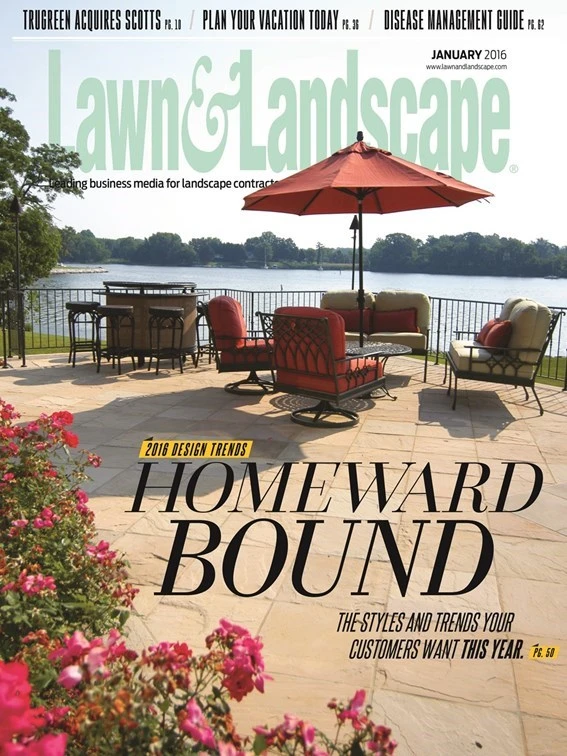


I started cutting lawns when I was 12. Then I went to landscape architecture school at Michigan State University and worked a couple years and then started my own company 35 years ago.
My father was always into plants and a master gardener, and it kind of felt like it was in my blood. I always watched nature and trees and everything like that. I think I fell into it with a lack of not knowing what else to do. It was either a lawyer or a landscape architect.
My parents and friends knew my personality and knew that one way or another I was going to make (landscape architecture) work. But I don’t think money was the important part at that time. I loved what I did enough that I just wanted to keep getting better. If you want to keep on getting better you’re going to eventually make money. And that’s the path I took. I still feel that way.
When you start (a company), you’ve got no assets whatsoever. I started out of a condo designing and I used to subcontract all my construction work, and all my installation work. From there, I slowly started acquiring equipment and a little bit of land, because I wanted a little bit more control over how I ran my business. I started hiring my own employees. Then I had to have a little bit of land for nursery stock.
It takes the land. It takes the equipment. It takes the payroll, but you gain a lot more control. Over the years, even now, we subcontract some construction things, and we’re trying to bring that back in-house because we need that control.
It’s hard to deal with employees and it’s hard to put all the pieces together. At the beginning, you wear every hat. Slowly, you try to delegate and hire people that are good and qualified to let them wear some of the hats.
Don’t get behind on your receivables. We learned that the hard way. One day when the economy fell – I don’t know what it’s like in other areas, but in Michigan when every developer and builder went bankrupt, or closed his doors, a lot of people got hurt. We took a big financial loss. It took years to recover from that.
I think the expectations in general have changed because of that. When the economy was really going strong I think we let things get out of control. We were running faster than I could keep up with some of the collections details. And I think now it’s more important for me to structure a business that can handle all the things that come along, rather than just accepting every job that comes along. We’re controlling the amount of sales that we can pursue.
We get more deposits now than we used to get. We make sure we’re on top of it. We don’t get that far behind on developers and builders. Now it’s got to be controlled because it’s one way that you really can lose a lot of money very, very quickly. But I don’t think that’s going to happen again in the near future. I think everybody’s a little bit more cautious.
People understand (asking for larger deposits.) They know that a lot of people lost a lot of money and that people are more careful – that their cash flow is a little bit tighter. A lot of people accepted it more readily than I would have expected.
Right now, it’s more the stabilization, because we grew 30 percent a year or so for the last two to three years out of the recession. Now we need to build staff, build people and we’ve run out of office space, so we got to add on to our office and things like that.
L&L
Explore the January 2016 Issue
Check out more from this issue and find your next story to read.





